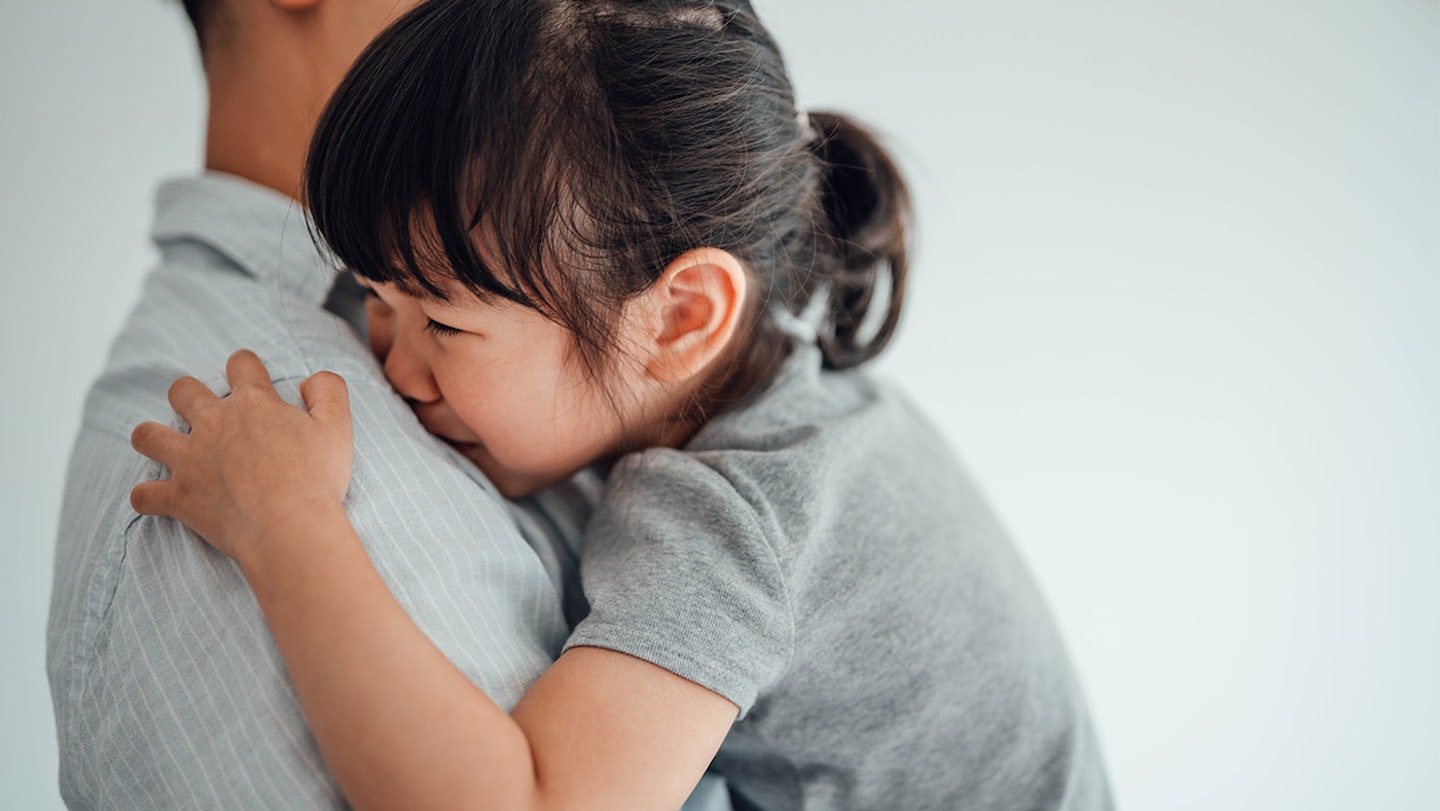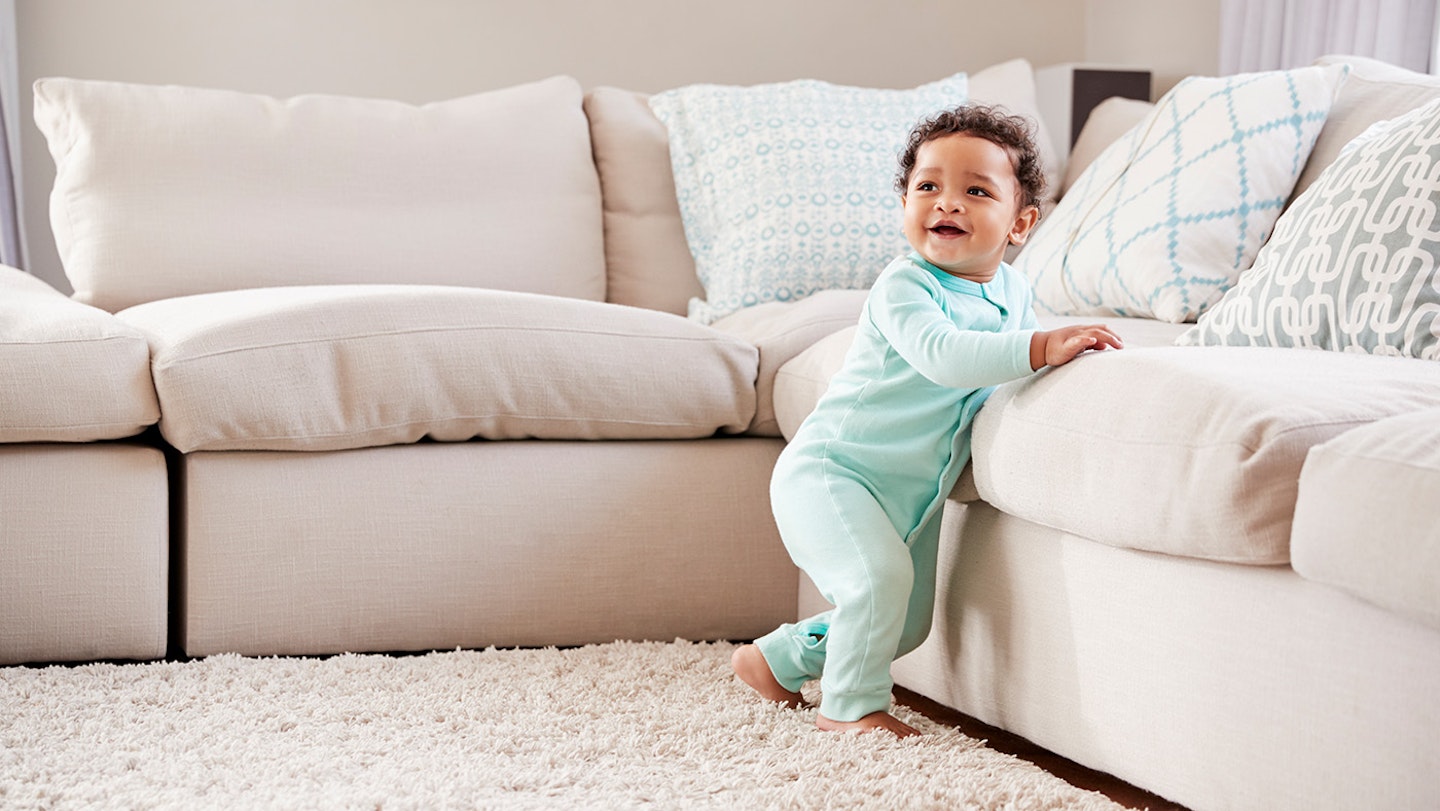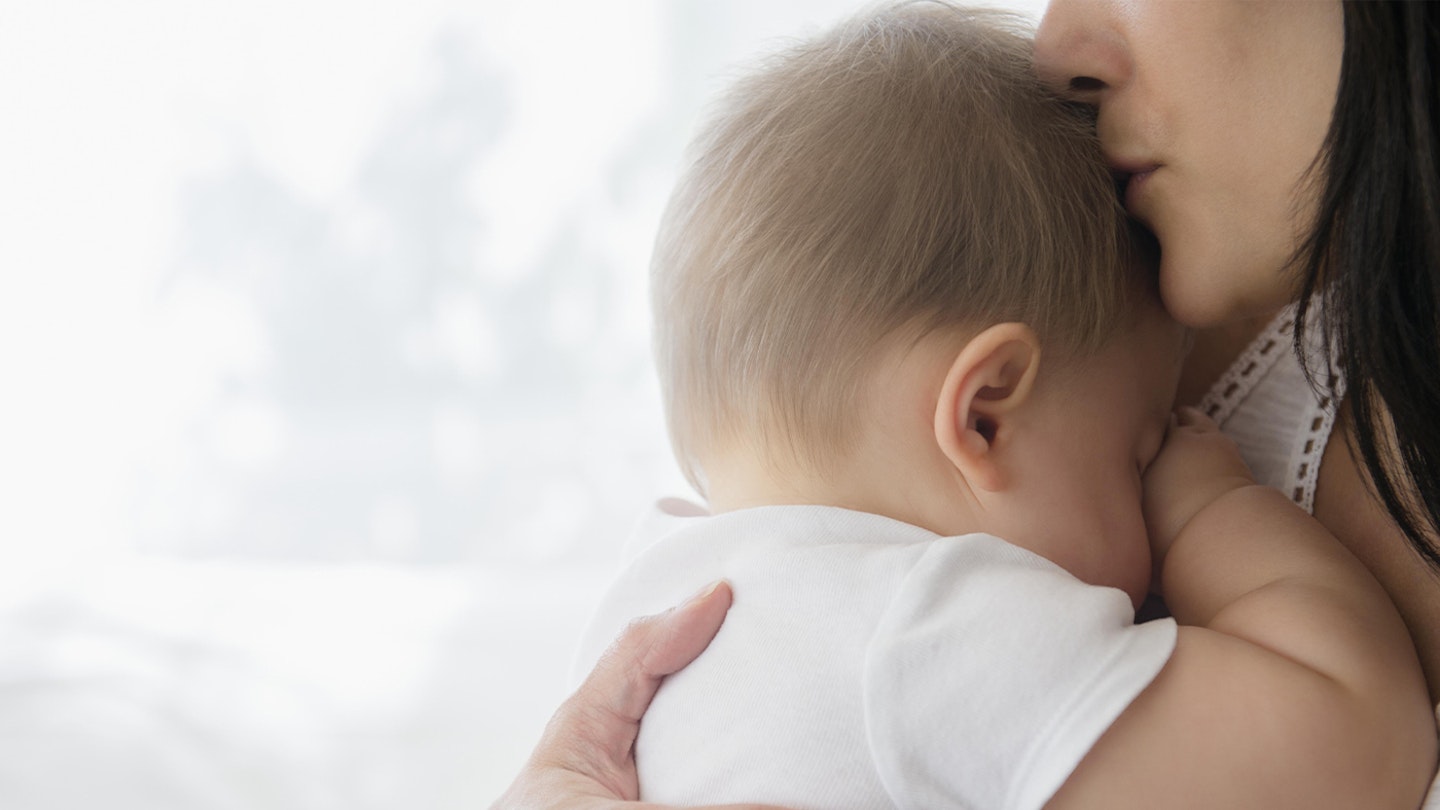There's nothing worse as a parent than seeing your baby getting a bump on their head. While in most cases, it's nothing to worry about, it's a good idea to know when you should worry as a parent and the warning signs to look out for.
Firstly, it's important to remember that common childhood accidents such as a bump to the head do happen and sometimes can't be avoided. Although it might feel easy to blame yourself, and you might be replaying the moment they took a tumble in your head, try to stay calm. Babies are much more likely than older children to bang their head, simply because their heads tend to be larger at this stage, making it easy for them to get unbalanced. Not to mention the fact their coordination and motor skills are still developing.
Most of the time these bumps to the head are minor, and only very rare cases require medical attention.
And according to The Childrens Trust, they said: "A concussion can happen at any age. Accidents can happen and as babies and toddlers learn to crawl, walk, run and play a little more roughly with toys, it is quite common for them to have a few bumps to the head. Babies and toddlers are at an age where they don’t fully understand the concept of risk or danger. "
Common causes in babies and toddlers include:
• Falls from beds
• Bumping into something or being hit by something
• Being dropped from a carer’s arms., say The Childrens Trust.
"Some of these symptoms may not be relevant as children develop skills at different ages, but keep an eye on the symptoms that do apply, looking for any unusual changes.", says The Childrens Trust.
What do I do if my baby bumps their head?
Your baby first aid kit won't be much help in this situation, and all you can really do is keep a close eye on your baby for the next 48 hours, no matter how serious the bump on their head seems. Their symptoms could potentially change, so it's important to keep the symptoms above in mind for this period.
You can also apply some ice to the affected area, keep checking the size of your baby's pupils, monitor their sleep and keep a doctor's phone number close by if things change or if you are concerned. Even if you are remotely worried, it's always better to act with caution when it comes to your baby.
Finally, make sure you give them plenty of cuddles and of course, rest.
Signs and symptoms
Key symptoms
• A lot more crying than normal
• Changes to your baby's feeding or eating
• Loss of interest
Things to check after the first 48 hours
You should ensure:
• your baby is sleeping normally
• that it is not difficult to rouse them (wake/check them after two hours to ensure they are not unusually sleepy and don't seem dazed when they wake)
• to only let them play quietly with minimal activity e.g. no running, rough play or activities with quick starts or jarring motions
When to go to A&E
If your child shows any of these symptoms, it's important to seek medical attention urgently. You should visit A&E if your child has a significant head injury or is displaying the symptoms below.
• Been knocked out but have now woken
• Vomited since the injury
• Display a change of behaviour e.g. become more irritable or lose interest
• Are crying more than usual
• Have had brain surgery in the past
• Uncontrollable bleeding from a cut
• Difficulty breathing
• If you can feel a soft spot or dent on the skull
• Bleeding from the nose or ears
• Excessive swelling or bruising
• Possible injury to the neck or spinal cord
When to call 999
If your child is suffering from the below:
• Seizures/fits
• Been knocked out but have not woken up
• Has trouble staying awake or keeping their eyes open
• Fallen from a height of more than 1 metre or 5 stairs
• Has trouble with their vision or hearing
• Has a black eye despite not directly injuring the eye
• Clear fluid coming from ears or nose
• Numbness or weakness in part of the body
• Difficulty with walking, balance, understanding or speaking
• Has hit their head at speed e.g. in a car crash
• Has a head wound with something inside it or a dent to the head
or you cannot get your child to A&E safely, the NHS say you should call 999 immediately.
Unsure what to do?
If in doubt and you're not sure what to do for the best, do not hesitate to call 111 who will tell you the best place to get help.

How to check for concussion in infants
If your baby has had a bump on their head, it may not be obvious straight away that something is wrong. This is because the majority of children who have concussions do not pass out or lose consciousness. It's more likely that they will immediately cry instead. Signs of a head injury may not become obvious until a few hours or even days later. And because babies and toddlers can not communicate if they have a headache, dizziness or other concussion symptoms, it's vital to keep a close eye out for changes that may be a sign of concussion. These include:
• Vomiting
• Physical injuries such as bumps, bruises and bleeding
• Lack of engagement in their usual interests.
• Changes to balance and coordination
• Changes in mood: your child may be more emotional and tearful
• Changes to eating
• Change in usual behaviour
• Change in sleep patterns
• Frequent touching of their head or stomach which could indicate a headache or stomach ache
How will a bump on a baby's head be treated?
Depending on the severity of the bump and the condition your baby's in, the doctor will take time to ask you what caused the injury, what your baby was doing before it happened and any symptoms they have been showing since the incident.
They then may give your baby a general physical and neurological exam, checking their eyes and responses. If anything concerning is found, the next step may be a CT scan to check everything in the brain is okay. They may also want to observe your baby over the next few hours.
Bump on baby's head but no fall
If you've noticed a bump or lump on your baby's head but they haven't had an obvious fall or accident, then you might also be wondering if this needs some medical attention.
The most common cause of a bump or lump on baby's head is a scalp hematoma which could be caused by an older injury which you haven't noticed. Any new lumps and bumps on your baby should be checked over by your GP just to be on the safe side, even if there are no other symptoms.

How can I avoid my baby getting a bump on their head?
If you've baby-proofed your home and your baby still manages to regularly get injured, it's worth knowing the places and scenarios in which bumps to baby's heads most commonly happen.
Falling down steps - any stairs or steps in your home should be covered by a reliable baby stair gate from the moment your baby starts to crawl, and this should be a part of your baby-proofing checklist.
Slipping the bathtub - baths can be a rather slippery surface, so it's a good idea to get a non-slip bath mat to keep little feet or bums from sliding around. Also, it's good to mop up any wet surfaces to avoid any falls after bath time.
Furniture - from climbing on sofas to falling off a bed or changing table, your little explorer won't yet be able to understand the risks of rolling over in bed and climbing furniture, so always keep a close eye on them and be sure to baby-proof your home.
Unbalance - as they're trying to find their feet, it's very common for your baby to regularly fall. When they fall forward, it's natural for them to put their hands out, but if they become unbalanced and fall backwards, their head may take the impact of the fall. Always try and stay close behind your baby when they're learning to walk to ensure their head gets a soft landing.
Playgrounds - your local children's playgrounds can provide hours of fun, but they don't come without their risks. Always stay close to your tot while they're still unsteady on their feet to avoid any accidents.
